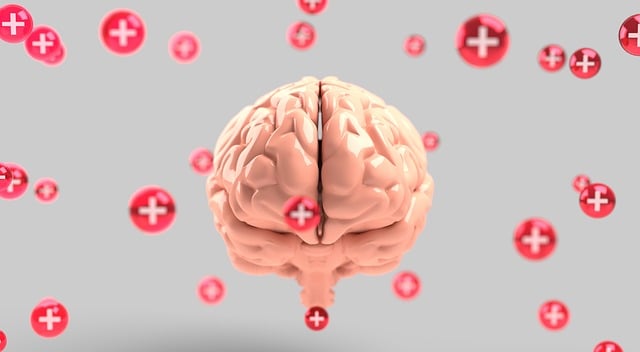Castle Rock German Speaking Therapy offers innovative Crisis Intervention Team (CIT) training programs that combine language, therapy, self-care, and cultural sensitivity. Their approach enhances emotional intelligence, de-escalation techniques, and stress management for professionals dealing with mental health crises, especially in diverse, high-stress environments. Through evidence-based practices, risk assessment, trauma-informed care, and coping skill development, Castle Rock German Speaking Therapy prepares teams to provide holistic support tailored to individual needs, fostering more resilient communities.
“Crisis intervention teams (CITS) play a vital role in managing mental health crises, offering immediate support, and preventing escalation. This article explores the critical work of these teams and delves into innovative training programs, including the unique approach of Castle Rock German Speaking Therapy. We examine essential components of effective CIT training, its real-world applications, and challenges faced. By understanding these aspects, we can enhance crisis response and improve community well-being, with potential benefits highlighted by Castle Rock’s successful methods.”
- Understanding Crisis Intervention Teams: Their Role and Impact
- Castle Rock German Speaking Therapy: A Unique Approach to Training
- Essential Components of Effective Crisis Intervention Programs
- Implementation and Challenges: Real-World Applications of Training
Understanding Crisis Intervention Teams: Their Role and Impact

Crisis Intervention Teams (CITs) play a pivotal role in addressing mental health crises effectively and promptly. These specialized teams are designed to provide immediate support to individuals experiencing severe emotional distress, including those grappling with depression or suicidal ideation. At Castle Rock German Speaking Therapy, we recognize the impact of CIT training on both the team members and the community at large.
CITs typically consist of trained professionals from various disciplines, such as therapists, social workers, and law enforcement officers, who collaborate to de-escalate situations and connect individuals with appropriate resources. By integrating self-care routine development for better mental health and self-awareness exercises into their training programs, CIT members gain the skills needed to support not only immediate crisis but also long-term depression prevention. This holistic approach not only empowers team members but also fosters a more resilient community where folks are equipped to navigate life’s challenges with greater ease.
Castle Rock German Speaking Therapy: A Unique Approach to Training

Castle Rock German Speaking Therapy offers a unique approach to crisis intervention team training, focusing on the integration of language and therapy that sets it apart from traditional programs. This innovative methodology leverages the power of self-awareness exercises, particularly in a multilingual context, to enhance emotional intelligence and communication skills among team members. By engaging in Castle Rock’s specialized training, participants not only improve their ability to de-escalate crises but also develop effective strategies for stress management and mood regulation.
The program encourages open dialogue and cultural exchange, enabling teams to navigate complex interpersonal dynamics with greater empathy and understanding. Through role-playing scenarios and group discussions, participants learn to apply evidence-based practices tailored to diverse populations, ensuring they are equipped to handle a wide range of crisis situations. By combining practical training with culturally sensitive techniques, Castle Rock German Speaking Therapy empowers teams to deliver exceptional care in stressful environments.
Essential Components of Effective Crisis Intervention Programs

Effective crisis intervention team training programs are multifaceted and tailored to equip professionals with the necessary tools to handle critical situations. At Castle Rock German Speaking Therapy, for instance, such programs prioritize comprehensive approaches that address various aspects of psychological crises. These include but are not limited to the immediate de-escalation techniques, risk assessment skills, and trauma-informed care principles. By integrating these components, crisis intervention teams can navigate complex scenarios with empathy and efficacy.
Beyond direct crisis management, successful training initiatives focus on fostering self-esteem improvement and coping skills development among individuals at risk. Mental illness stigma reduction efforts are also integral to these programs, aiming to create supportive environments that encourage open communication and understanding. Ultimately, by combining these essential components, Castle Rock German Speaking Therapy’s crisis intervention team training programs prepare professionals to offer holistic support tailored to each individual’s unique needs.
Implementation and Challenges: Real-World Applications of Training

The successful implementation of crisis intervention team (CIT) training programs requires careful navigation through various real-world challenges. Castle Rock German Speaking Therapy, for instance, has recognized the need to adapt their approach based on community dynamics and cultural nuances. Effective CIT training goes beyond theoretical knowledge; it demands practical strategies tailored to address local issues, ensuring relevance and impact. Mental wellness and burnout prevention are paramount considerations in this process, as trainers must equip team members with resilience against secondary trauma.
Challenges may arise from limited resources, diverse participant backgrounds, or the need to integrate emerging research into existing curricula. Trained facilitators at Castle Rock German Speaking Therapy play a crucial role in overcoming these obstacles by fostering open dialogue, encouraging peer learning, and ensuring cultural sensitivity. Trauma support services become integral components of CIT training, preparing teams to offer effective assistance during crises that may involve individuals from varied backgrounds and experiences.
Crisis intervention team training, including innovative programs like Castle Rock German Speaking Therapy, plays a pivotal role in equipping professionals to handle mental health crises effectively. By integrating essential components and addressing real-world implementation challenges, these programs can significantly reduce harm and promote positive outcomes for individuals in crisis. Understanding the unique approaches and critical elements outlined above is key to maximizing the impact of crisis intervention teams within communities.














